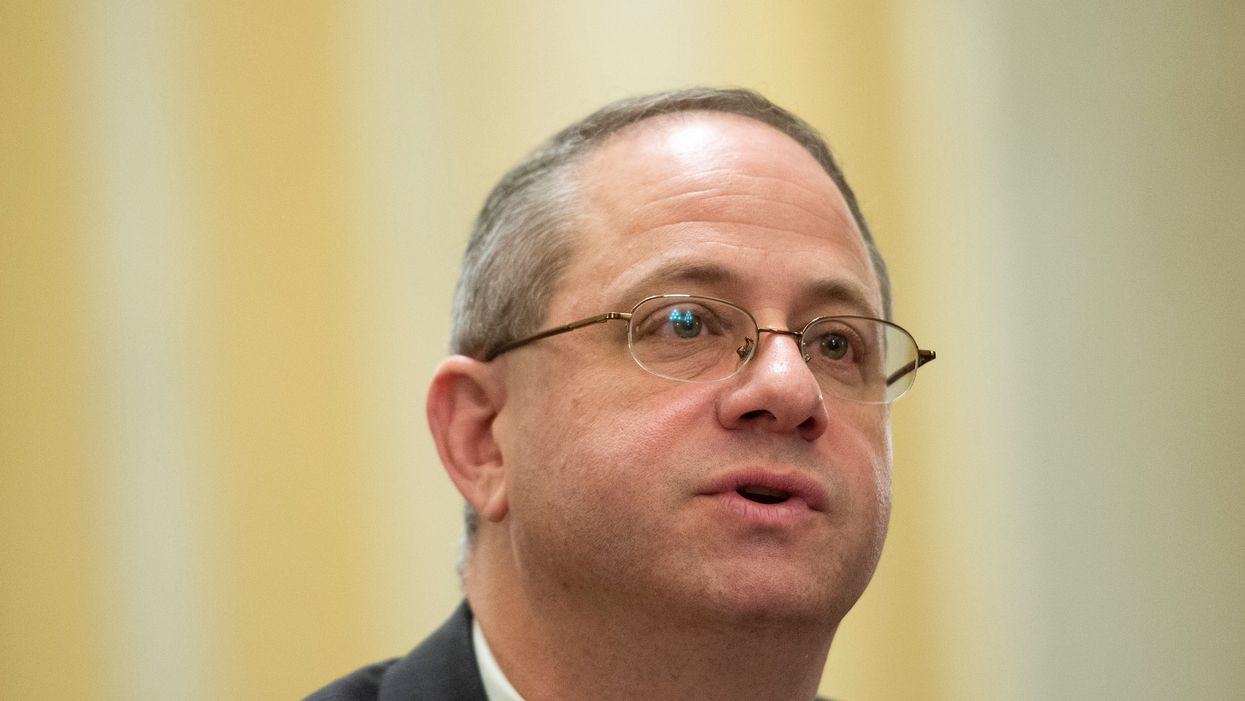After 262 days in limbo, the Federal Election Commission can operate again. But a toxic mix of partisanship and the agency's own rules provides little hope the campaign finance regulator will soon function.
The doors can symbolically reopen because the Senate voted Tuesday, 49-43 along party lines, to confirm conservative Texas attorney Trey Trainor as a commissioner — ending the longest period ever when the panel lacked the four-person quorum required to conduct business.
But it also takes four votes to do anything consequential. And the even partisan split Trainor creates means the FEC is returning to its life for the past decade — at an impasse on almost every question about enforcing the limited laws of money in politics. The persistent deadlock is one of the main reasons the campaign finance system is derided by critics as out of control.
Democrats and good-government groups have opposed Trainor's nomination for three years, and their frustration only grew after the FEC closed up shop in September.
At a time when another wave of aggressive and secretive fundraising by advocacy groups and candidates was starting to ramp up — and unlimited spending by corporate and foreign interests to influence presidential and congressional contests was starting to break records again — a fully functioning FEC is imperative, they say. But they lambasted Trainor's deregulatory approach to money in politics, made clear from his time as a lawyer for President Trump's 2016 campaign and the Texas GOP, as antithetical to the FEC's mission.
And they were further miffed that Trump has nominated only Trainor, breaking the longstanding practice of proposing new commissioners in bipartisan pairs. The president has ignored the request of Democratic leaders to also nominate Shana Broussard, a senior FEC attorney who would be the first person of color in the 45-year history of the commission.
The president could name five more nominees, not only to fill two open seats but also to replace the three existing commissioners. All are serving long past the expirations of their terms, which the law allows.
By dropping the bipartisan nominating custom, the Senate "ends up allowing unqualified nominees who hold extreme views to be appointed to important positions," Amy Klobuchar said during the only speech on the Senate floor before Tuesday's vote.
The Minnesota senator, who's the top Democrat on the committee with jurisdiction over election policy, blasted Trainor for his hands-off view toward campaign finance law.
"The absolute minimum qualification should be that the person actually believes in the mission of the agency," she said. "Is that too much to ask?"
As a lawyer for the conservative lobbying group Empower Texans, for example, Trainor fought the state Ethics Commission over donor disclosure requirements — offering the novel argument that unmasking the identities of campaign benefactors could distract voters from the content of political messages.
Such a belief in donor anonymity was one of many reasons that Trainor was opposed by the entire community of groups that advocate for tighter campaign finance regulations, including the Campaign Legal Center, Common Cause, End Citizens United and Issue One.
"Why would someone who has gone on the record as being adamantly opposed to the responsibilities of an agency get nominated to serve as a commissioner of that agency?" CLC President Trevor Potter, a former FEC member, asked in an opinion piece for Daily Kos. "The cynical, but obvious answer is: to render the agency toothless."
For the last eight months, the agency has been unable to hold hearings, advise campaigns about how to follow the law, start new investigations, close pending cases or issue penalties. Its main function has been to keep the mailroom open to accept and file away candidates' periodic reports about their fundraising and spending.
The agency has the power to police limits on campaign contributions and investigate potential illegal spending by candidates and out-of-bounds donations from foreigners — but for now it is powerless, even if there were unanimous agreement, to curb the flow of so-called dark money.
Watchdog groups have been circumventing the rudderless FEC by pursuing campaign finance violations in federal court. The law that created the agency permits civil lawsuits against money-in-politics miscreants if the commission doesn't act on complaints in a timely manner — and without a quorum, the FEC couldn't act at all.
With Trainor installed, such a work-around will only be possible if a commissioner decides to walk away from a case in order to create the sort of stall that allows federal courts to intervene. Democrat Ellen Weintraub is the only commissioner who has ever done so, but only in a single case where she decided to "break the glass" to go after a group that spent millions on political ads without disclosing its donors.
The commissioners face a mountain of backlogged work. At the end of March, the last time the agency took note, 333 cases were pending — meaning the docket had grown 22 percent in the seven months after the de facto shutdown began when Trainor's predecessor Matthew Petersen resigned effective Sept. 1.
Of those cases on the docket, at least 166 are awaiting a vote from the commission and 90 have been pending so long they are about to be dismissed because the five-year statute of limitations will have expired.
Few are expecting the commission will be able to clear the decks, because Trainor is very likely to vote with his new conservative colleague, Chairwoman Caroline Hunter, negating the more assertive enforcement approaches of Weintraub and Steven Walther.
"Despite regaining a quorum, the FEC will likely stay hopelessly broken as an enforcer of our nation's election laws," said Meredith McGehee of Issue One. (The organization incubates but is journalistically independent of The Fulcrum.)




















Trump & Hegseth gave Mark Kelly a huge 2028 gift